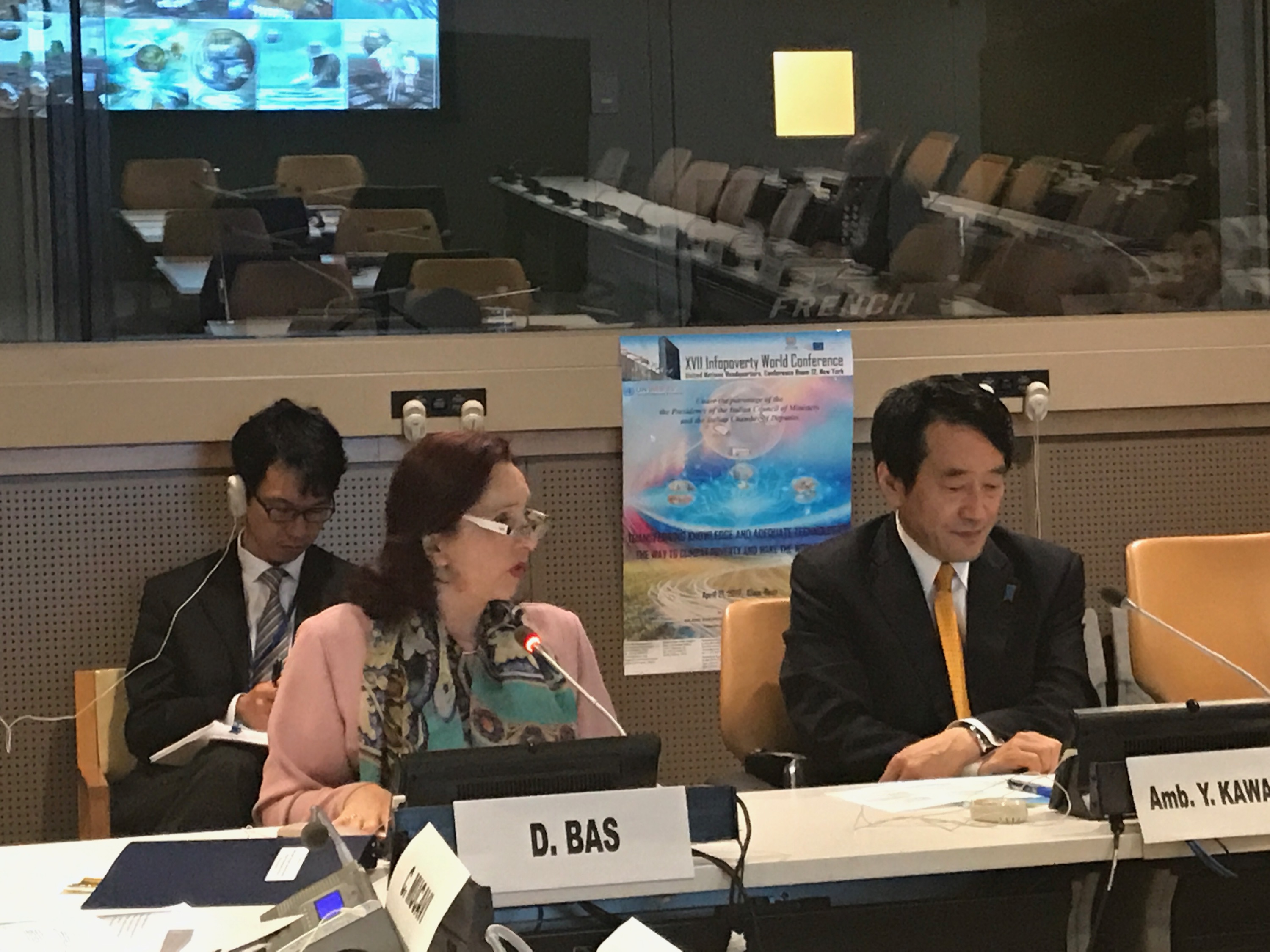
An estimated 767 million people, or 11 per cent of the world’s population, live below $1.90USD per day, and about 800 million people suffer from hunger across the globe. Furthermore, nearly 1 billion people live without electricity and scarcity of water affects more than 2 billion people. While the number of people living in extreme poverty has decreased, much still needs to be done to eradicate poverty and achieve sustainable development for all.
On 21 and 22 April, the United Nations Headquarters in New York hosted the 17th Infopoverty World Conference (IFC). Each year the IFC sets out to highlight the most innovative ways of eradicating poverty through technology. This year the IFC entitled, “Transferring knowledge and adequate technologies: The way to combat poverty and make the world safer,” intended to show the importance of sharing technological innovations, and thus knowledge, across all social levels as a way to end poverty.
The Director of UNDESA/DSPD, Ms. Daniela Bas, in an opening address stressed the importance of working together, achieving social justice, and leaving no one behind. The Division works on the topics of poverty eradication and marginalized groups such as persons with a disability, indigenous peoples, youth and the elderly. Technology is critical in offering solutions to social issues as it often bridges the divide between progress and social justice when it is accessible, inclusive, and sustainable.
Given technology is pivotal to social progress, the fact that people do not have access to modern innovations is unacceptable. According to the International Telecommunications Unit (ITU), 3.9 billion people have no Internet access. The work of DSPD includes a focus on including vulnerable social groups in modern technologies so they too can benefit fully.
This IFC showed that there is urgent work that needs to be done to eradicate poverty and the rapid innovations in technology are catalysts to achieving the first Sustainable Development Goal. The message of the IFC was clear: the lives of the most vulnerable will greatly benefit from the sharing of knowledge and technology as the digital divide closes.
Source: UNDESA DSPD
 Welcome to the United Nations
Welcome to the United Nations